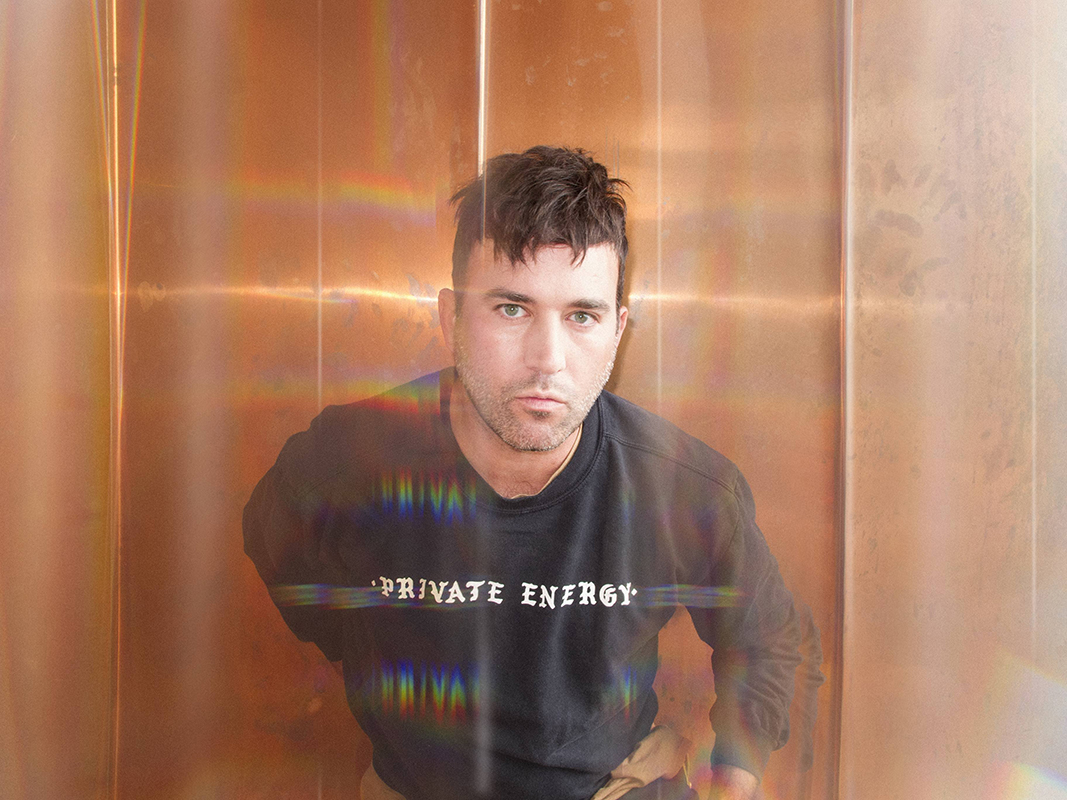Sufjan Stevens’ ‘The Ascension’ review: A sprawling epic of an album
Sufjan Stevens returns with a glitchy, trippy, highly judgmental meditation on the state of the world

Like most of us, Sufjan Stevens has been sitting with a lot of discomfort lately. His latest release, The Ascension, is a sprawling, 80-minute epic of an album that puts his angst over life, death, and love on full blast and shares much in common with his 2010 electronic fever dream, The Age of Adz. After the inward-looking and deeply personal Carrie and Lowell, his latest album finds him getting existential, with a message that we are all in this together, and that fact alone should terrify us.
The Sufjan we hear on this album is a much more overtly disaffected and world-weary artist, although more specifically with the state of his home country than the rest of the world. The closing track, “America,” released in July as the first single from the album, reckons with his disillusionment at what it means to live in America today, a disquieting sentiment coming from an artist who made his name on twee folk-pop mythologizations of the country in the mid-2000s.
Stevens spends much of The Ascension (★★★★☆) yearning for one thing or another. It’s a yearning that takes different forms, but at its heart always boils down to a search for some essential humanity beneath the noise. “Video Game,” released earlier this year along with a video starring and choreographed by TikTok star Jalaiah Harmon, openly laments the difficulty of finding “invaluable” worth of the self in the midst of the “ephemeral” approval of the outside world.
“I Wanna Die Happy” consists of the single, titular phrase, repeated ad nauseum over a gradually swelling mess of synths. It’s a technique that Stevens returns to repeatedly on tracks like “Ativan,” “Death Star,” and “Ursa Major,” allowing hazy instrumentals to gradually morph from an ambient dreamscape into clanging, quasi-industrial chaos, giving the whole album a sense of unease, verging on outright turmoil. “Landslide” uses this instrumentation to great effect to present love as a crushing, overwhelming force.

Even when Stevens is saying very little, he remains a powerful storyteller. “Gilgamesh,” in characteristic Sufjan Stevens style, blurs metaphysical lines hunting at a bond that is both divine and visceral. Love has always been shrouded in ambiguity in Stevens’ songwriting, as has the question of whether it is dealing with the human, the divine, or both. Complicating matters, he has never been shy about wielding biblical, contemporary Christian, and more nebulously spiritual imagery and language in his songwriting. With lyrics that are rich in allegory and narrative power, The Ascension is no exception.
Despite the weight of the subject matter, The Ascension is an unexpectedly fun listen. Many of the songs are genuinely catchy and the ones that aren’t are still compelling in their intricacy. And as heavy as his lyrics are, they are wry, sardonic, and oddly hopeful. “Sugar,” his meditation on “the desire for goodness and purity,” drives home the glimmer of optimism underlying the album, that even in the middle of unprecedented tumult, the good can still be found, recovered, and created, and even the things that are irreparably broken can ultimately be replaced with something better.
The Ascension will be released on all streaming and download platforms on Friday, Sept. 25. The physical release date is Oct. 2.
Read more:
‘Fun City’ review: Bright Light Bright Light’s brilliant tribute to queer people and spaces
Erasure’s ‘The Neon’ review: An album of bright, flamboyant, club-ready tracks
‘Show Pony’ EP review: Orville Peck releases a clever, haunting collection of songs
Support Metro Weekly’s Journalism
These are challenging times for news organizations. And yet it’s crucial we stay active and provide vital resources and information to both our local readers and the world. So won’t you please take a moment and consider supporting Metro Weekly with a membership? For as little as $5 a month, you can help ensure Metro Weekly magazine and MetroWeekly.com remain free, viable resources as we provide the best, most diverse, culturally-resonant LGBTQ coverage in both the D.C. region and around the world. Memberships come with exclusive perks and discounts, your own personal digital delivery of each week’s magazine (and an archive), access to our Member's Lounge when it launches this fall, and exclusive members-only items like Metro Weekly Membership Mugs and Tote Bags! Check out all our membership levels here and please join us today!

























